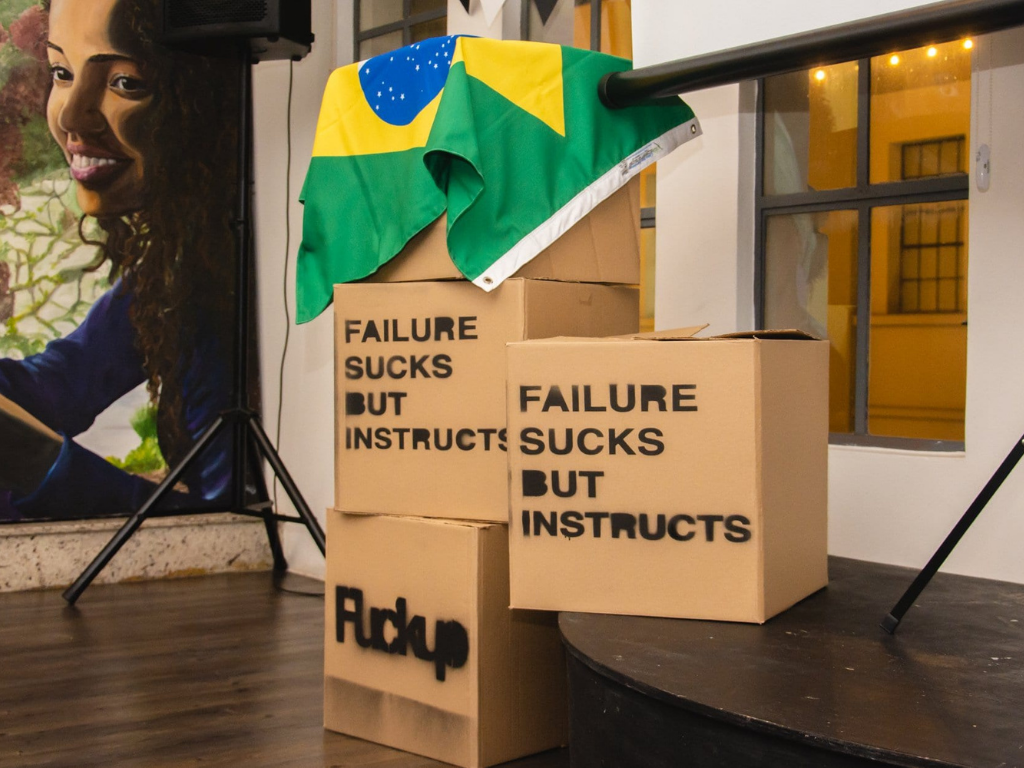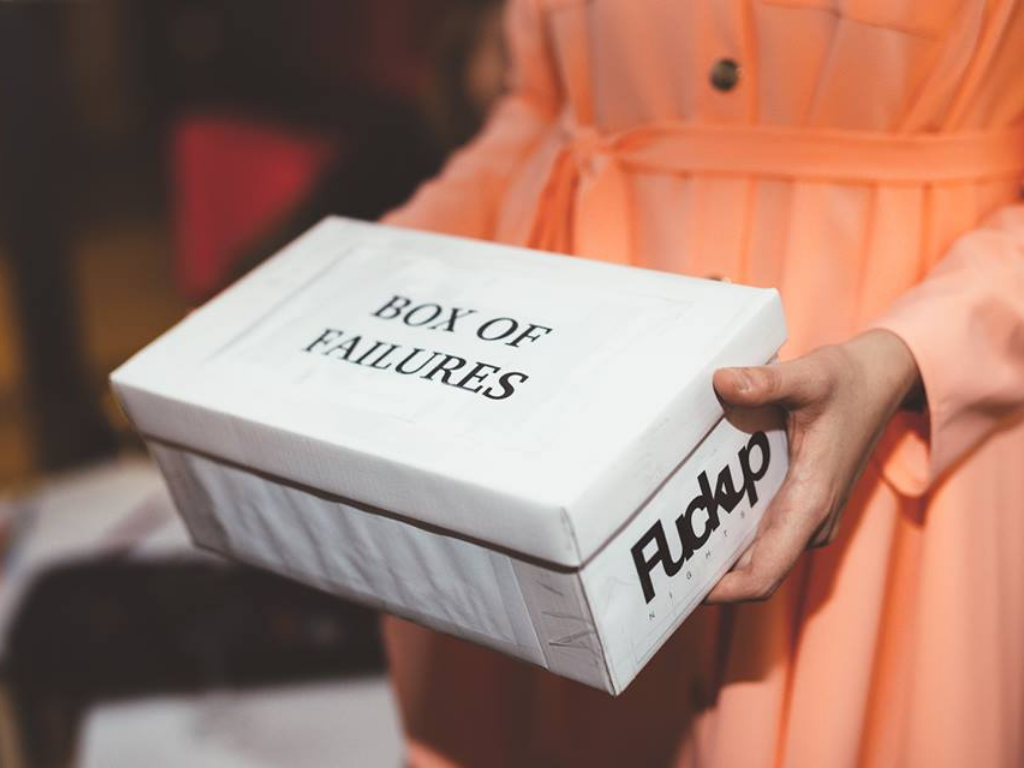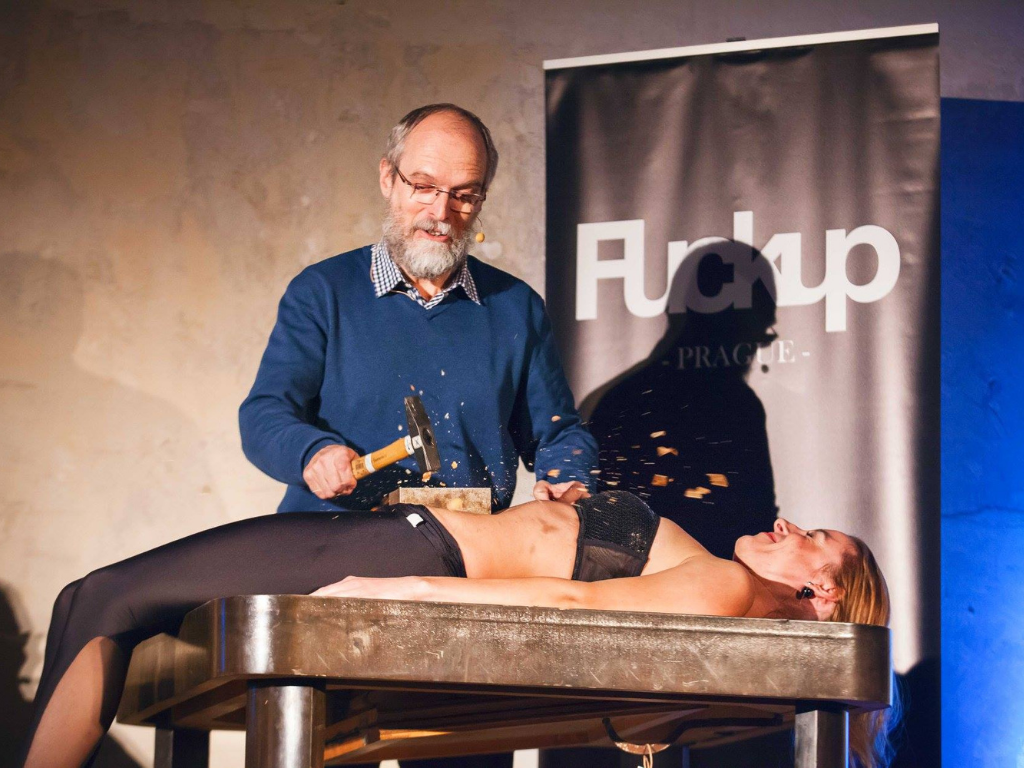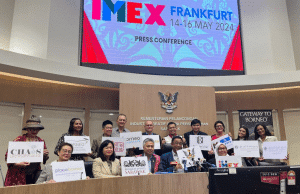While the failure has become a celebrated topic in today’s business landscape, Yannick Kwik, global business development lead at F*ckup Nights, said the company embraced the expletive in its name to double down on the need to be candid about what went wrong.

“Everyone was always talking about success, but no one was even mentioning their screwups to their close friends.”
“We focus on having people be very vocal and accept how their decisions affected the outcome,” Kwik said. “There are a million variables that impact whether something goes right or wrong, but we don’t want to hear a speaker blame the other pieces of the puzzle or the circumstances. Take responsibility for your decisions. Tell us what you did wrong and what you would do differently if you could go back in time.”
“There are not 50 seats perfectly placed in a room with white walls,” Kwik said. “The environment always needs to be something with personality. It might be a theatre or a bar. We’ve hosted them in co-working spaces and churches, on the street, and at the beach. They are almost always supported by a few drinks.”
“F*ckup Nights started, like many of the best stories, with a night of drinking,” Kwik said. “The two founders were having some mezcal and started sharing their own business failure stories. They realized that, even though they were very close friends, they had no idea about their failures. Everyone was always talking about success,” Kwik added. “But no one was even mentioning their screwups to their close friends.”

The F*ckup Nights Formula
Fuckup Nights have already created 1,500 stories shared their philosophy with nearly 190,000 attendees since launching in 2012. How does the company manage a community of local organizers — known as “f*ck-uppers” — to spread around the world? Trust. They could not possibly attend all of these events, so they empower individuals with documentation and training. “We try to have a conversation about what moves us and what moves you,” Kwik said. “It’s not an interview. It’s to understand if we can get along.”
If they do hit it off, local organizers pay a small monthly membership fee to make use of the company’s brand and receive its support. Then, they are unleashed to choose the venue, date, and speakers. They have to follow a formula for each presentation — seven minutes and up to 10 images to tell the story — and they must maintain a recurring presence in the market. “The minimum frequency is four events per year,” Kwik said. “We have found that when organizers run events every month, the quality tends to be better. Participants know they have to save a spot on the calendar for it. The idea is to have a constant presence to build a community. We do not want to run one-off events because those tend to be forgotten.”

Private Conversations
The F*ckup Nights movement has also planted roots inside the walls of corporations and governments with a private event offering. These enterprise-level events are run to achieve specific goals, Kwik said, and interest from prospective clients has intensified in the past two years. “They could be going through a business transformation or adopting a new technology or aiming to create a new kind of culture in the workplace,” he said. “We start with failure as a way to touch very different topics.”
Kwik said that the company works on up to 20 private events each month, and those local organizers of public events can be paid to moderate these invitation-only gatherings. To date, more than 200 corporations have hosted some kind of internal F*ckup Night (or day). For example, IBM chose the company to moderate a two-day summit of leaders in Mexico. Regardless of the audience, Kwik said that the movement is rooted in the power of storytelling.














